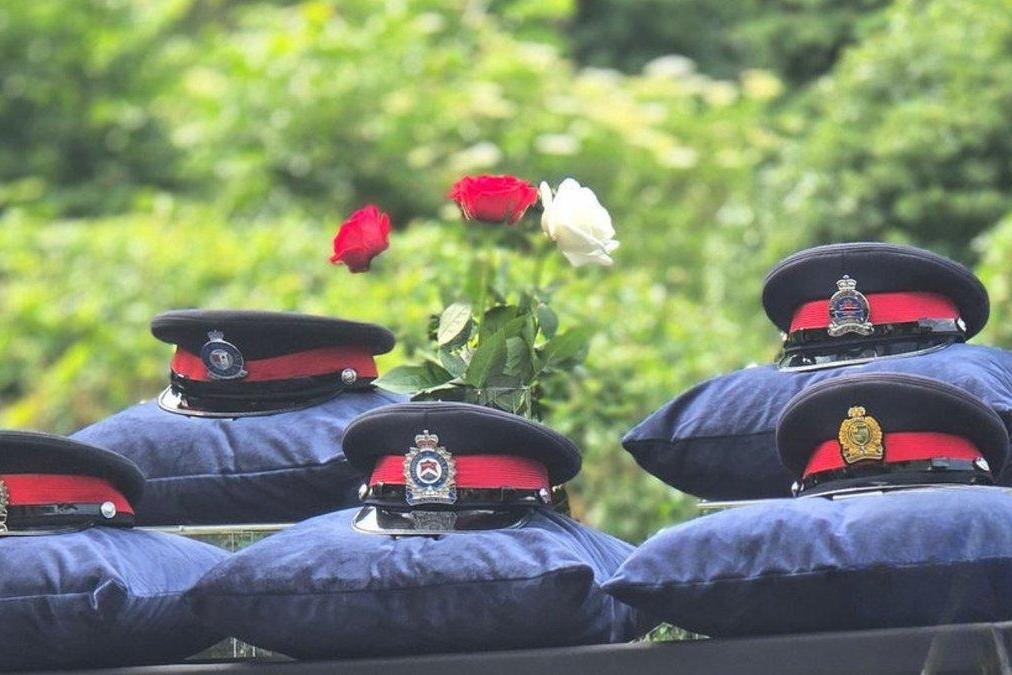London Police Service members made the journey to Queen’s Park in Toronto on June 22nd to participate in the second annual Ontario Police Suicide Memorial, a solemn gathering that brought together police services from across the province.
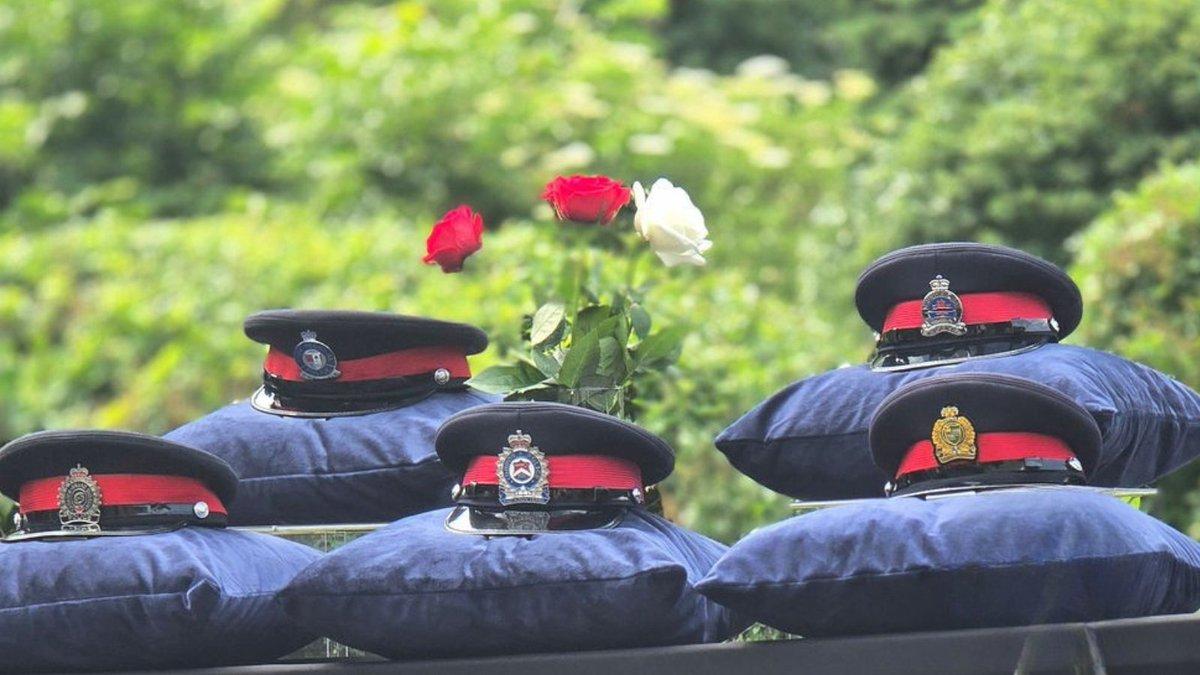
The memorial, organized by Canada Beyond The Blue, serves as a powerful reminder of the unique pressures and mental health challenges that come with a career in policing. Officers, families, and community members gathered to honour those who have lost their lives to suicide within the policing community.
London Police Chief Thai Truong took on the meaningful role of reading names from the Honour Roll during the ceremony. Each name represented an officer whose life was cut short, leaving behind families and communities who continue to feel their absence.
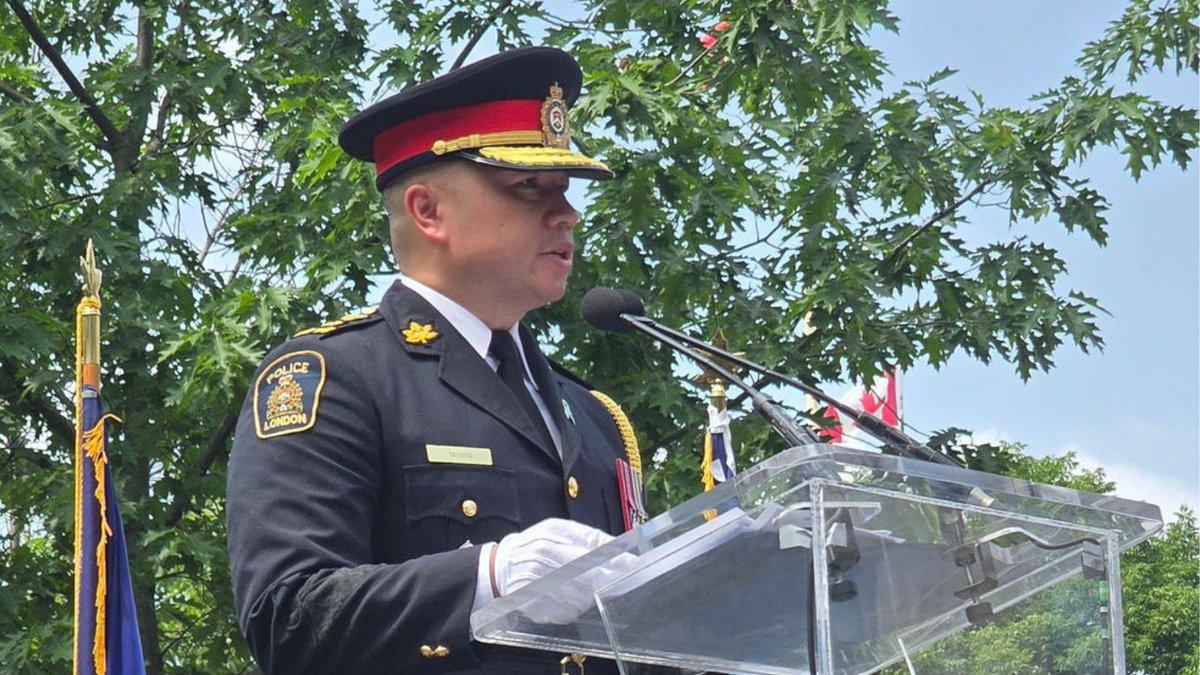
The event highlighted the ongoing mental health crisis within law enforcement ranks, where officers face daily exposure to trauma, violence, and high-stress situations that can take a significant toll on their psychological well-being.
Chief Truong reflected on the importance of the memorial, describing it as both an opportunity to show respect and a chance to remember the lasting impact of service. He emphasized how each name read aloud served as a reminder of the critical importance of wellness programs and support systems within police forces.
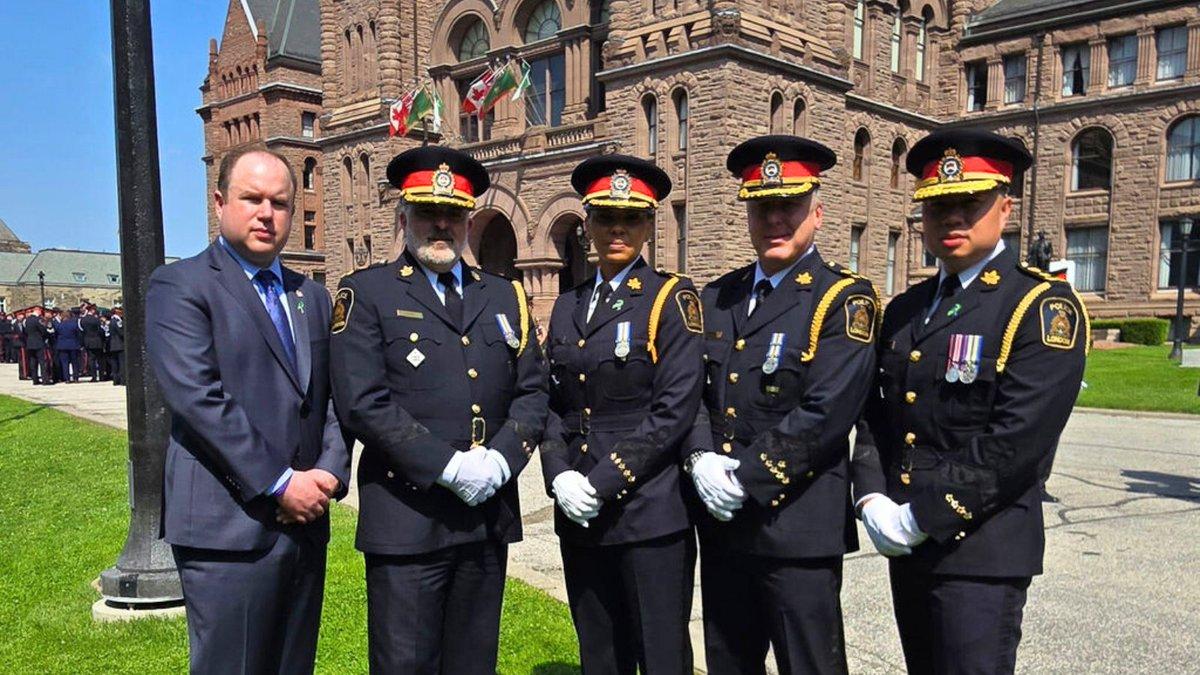
The London Police Service’s participation in this provincial memorial demonstrates their commitment to supporting not only their active members but also the families who have experienced the devastating loss of a loved one to suicide.
Canada Beyond The Blue and Toronto Beyond The Blue, led by Dilnaz Garda and Kristal Jones, organized the memorial with a focus on ensuring that those lost are never forgotten. Their leadership in creating this annual tribute provides a crucial platform for remembrance and awareness.
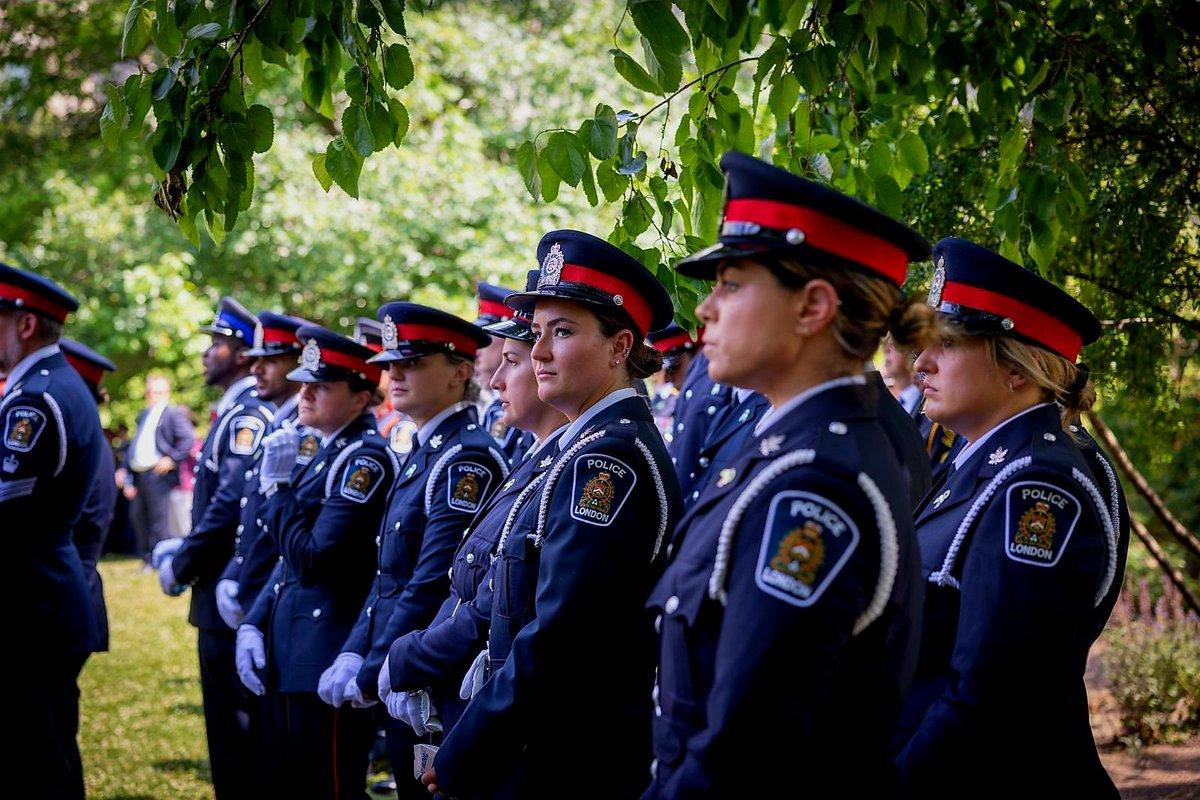
The gathering brought together police officers from various Ontario services, creating a united front in addressing the mental health challenges that are increasingly recognized as occupational hazards in law enforcement.
The memorial’s timing and location at Queen’s Park, the seat of Ontario’s provincial government, underscored the significance of addressing police mental health at a systemic level across the province.
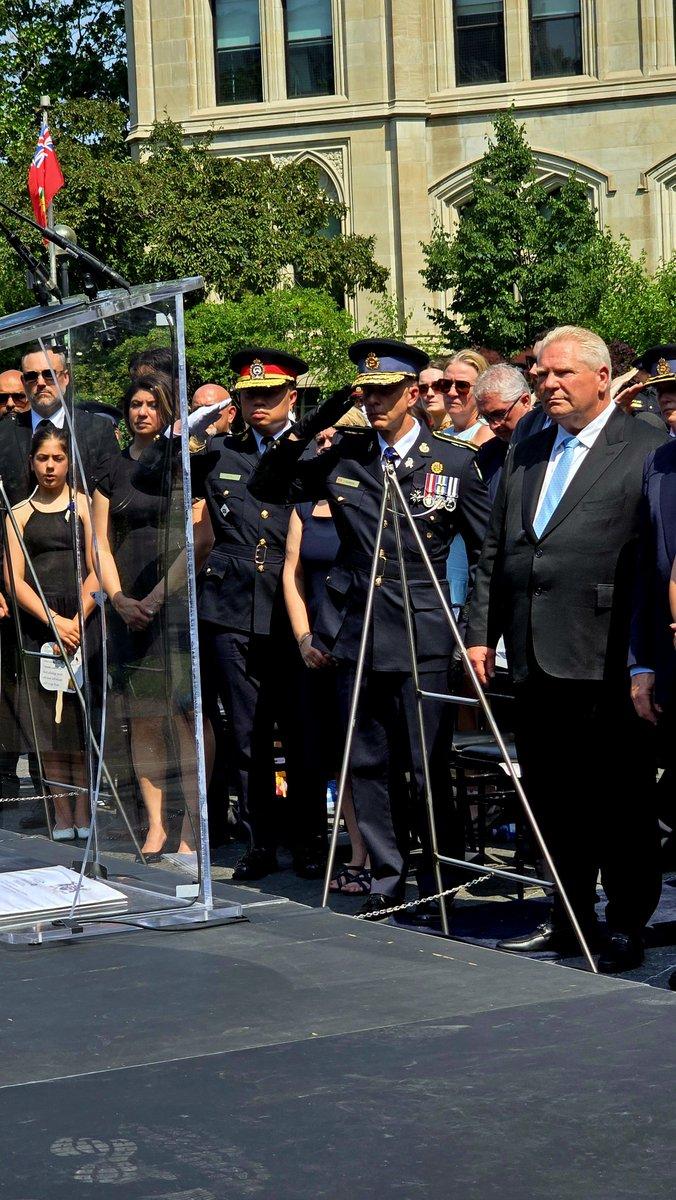
For the families in attendance, the memorial provided a space to grieve publicly and receive support from the broader policing community. The event recognized that the impact of police suicide extends far beyond the individual, affecting spouses, children, parents, and colleagues.
The London Police Service’s social media posts about the event garnered significant engagement, with hundreds of views and interactions from community members showing their support for the initiative.
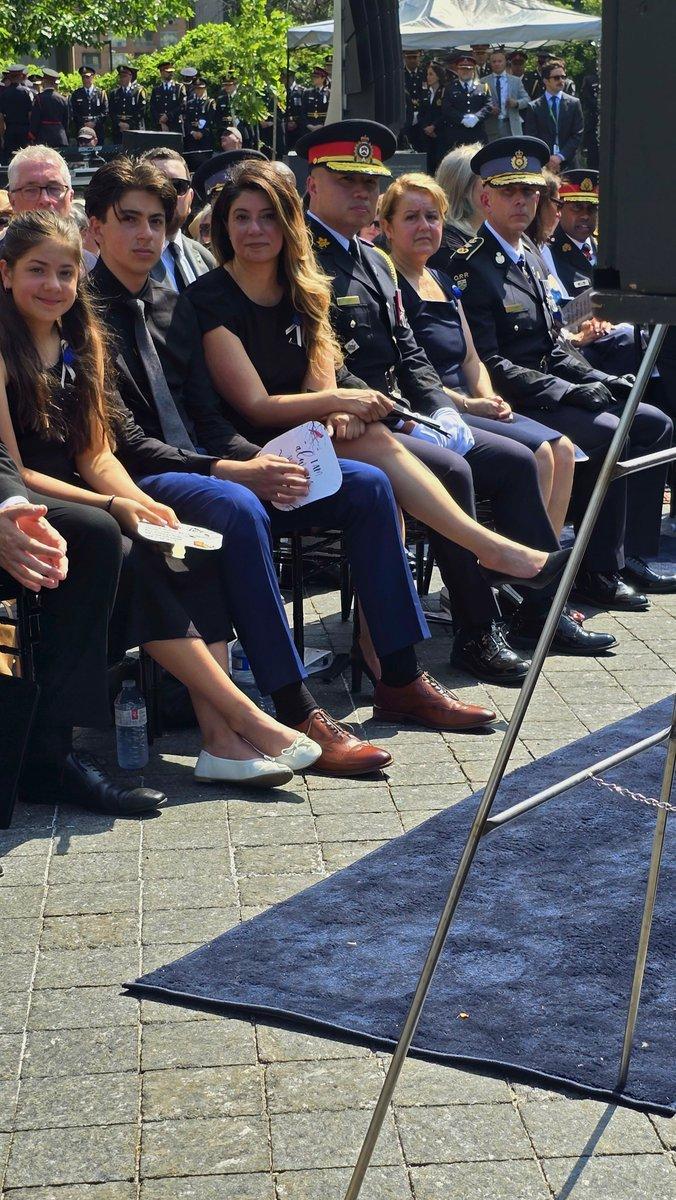
The memorial also served as a call to action for continued investment in mental health resources and support systems within police departments. Officers who may be struggling silently were reminded that help is available and that seeking support is a sign of strength, not weakness.
Chief Truong’s participation in reading the Honour Roll names added a personal touch to the ceremony, as he represented not just the London Police Service but all the officers under his command who understand the weight of their profession.
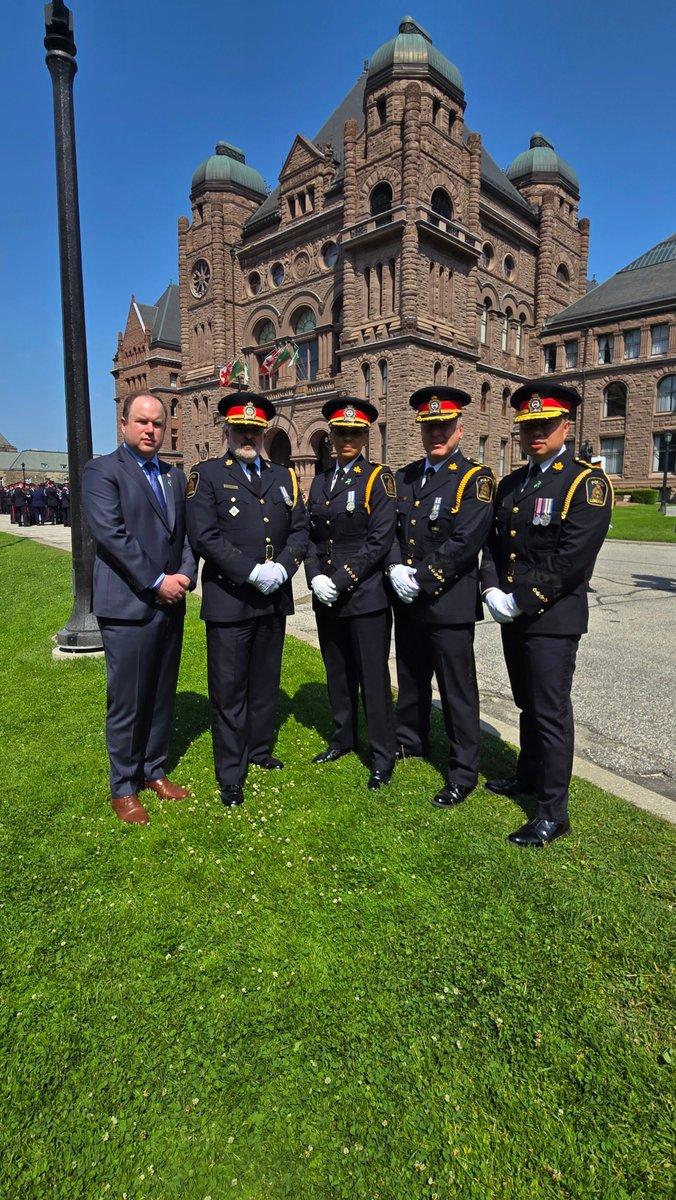
The second annual nature of this memorial indicates a growing recognition within Ontario’s policing community that addressing mental health and suicide prevention requires ongoing, dedicated attention rather than occasional acknowledgment.
The event brought together officers from urban centres like London and Toronto alongside their colleagues from smaller communities across Ontario, creating a province-wide network of support and shared understanding.
The hashtags #HeroesInLife and #NeverForgotten accompanied the London Police Service’s posts about the memorial, emphasizing that those who died by suicide are remembered as heroes who served their communities with dedication and bravery.
The memorial’s impact extends beyond the single day of ceremony, as it reinforces ongoing conversations about mental health support, early intervention, and the importance of checking in on colleagues who may be struggling with the demands of police work.

